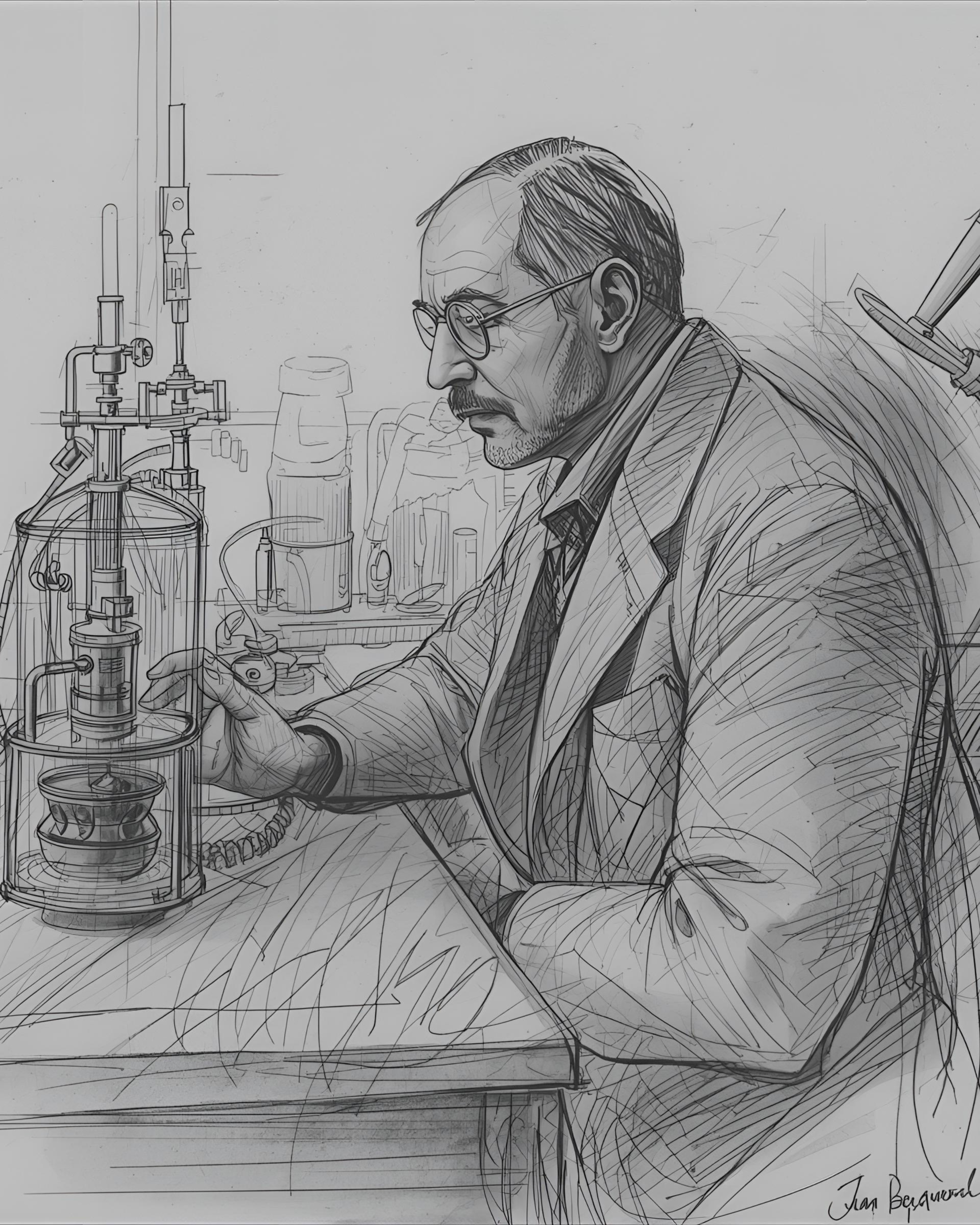MABBI – Jean Becquerel (1820–1908) was a French physicist, and like his grandfather Louis Becquerel and his son Henri Becquerel, he was part of the prominent Becquerel family of scientists. Jean Becquerel was an important figure in the study of magnetism and electricity, contributing to the understanding of electromagnetic phenomena and helping lay the groundwork for the later discoveries of his son, Henri, in the field of radioactivity. Jean Becquerel was born in Paris in 1820. He was the son of Antoine-César Becquerel, a physicist known for his work on light and electricity. Jean pursued his studies in physics at the prestigious École Polytechnique and later worked as a professor and researcher. His career was closely tied to the scientific advancements of his time, particularly in electromagnetism and related fields. Jean Becquerel contributing in science is
Magnetism and Electric Currents:
Jean Becquerel is best known for his work in magnetism and his experiments on the electric properties of magnetic materials. In particular, he was a pioneer in the study of the electromagnetic induction effect. One of his key contributions was his investigation into the magnetic properties of materials and how electric currents interacted with magnetic fields, building on the work of earlier scientists such as André-Marie Ampère and Michael Faraday.
Electrochemistry:
Jean also conducted significant research in electrochemistry—the branch of chemistry that deals with the interaction between electric currents and chemical reactions. His experiments helped lay the foundation for the study of galvanic cells and the understanding of electrolytic processes.
Work on the Interaction of Light and Matter:
Jean Becquerel made contributions to understanding how light interacts with matter, specifically with regard to light-induced electric currents. While his work in this area was overshadowed by the later discoveries of his son, Henri, Jean Becquerel’s studies helped to explore the connections between electromagnetic radiation and electricity.
Research on Luminescence:
Like his father, Antoine-César Becquerel, Jean also studied luminescence and its relationship with electric and magnetic phenomena. While not a major focus of his career, his work in this area contributed to the broader scientific understanding of light and its various properties.
Jean Becquerel was a solid, though somewhat overshadowed, figure in 19th-century physics. His contributions to the study of magnetism, electricity, and light were important, and he was instrumental in advancing the research that would lead to the later groundbreaking discoveries in electromagnetism and atomic physics. However, it is primarily his son, Henri Becquerel, who is best known for his discovery of radioactivity in 1896, for which Henri won the Nobel Prize in Physics.
Despite not being as famous as his son, Jean Becquerel’s work set the stage for many later advancements in physics and chemistry. His research, particularly in electromagnetic phenomena and electrochemistry, helped to establish the foundations for future studies in these areas. His work, in combination with his father’s and son’s contributions, made the Becquerel family one of the most distinguished scientific dynasties in history.
Though Jean Becquerel’s name is not as widely recognized as Henri’s, his contributions to physics were part of a larger scientific legacy within his family. The becquerel (Bq), a unit of radioactivity in the International System of Units (SI), is named after his son, Henri Becquerel, in recognition of Henri’s discovery of radioactivity.
In summary, Jean Becquerel was an important figure in the electromagnetic sciences and contributed to the broader understanding of electricity and magnetism, helping pave the way for many of the future developments in physics. While his name might not be as famous as that of his son Henri, his work was vital to the development of the scientific principles that underpinned later discoveries.

Leave a Reply